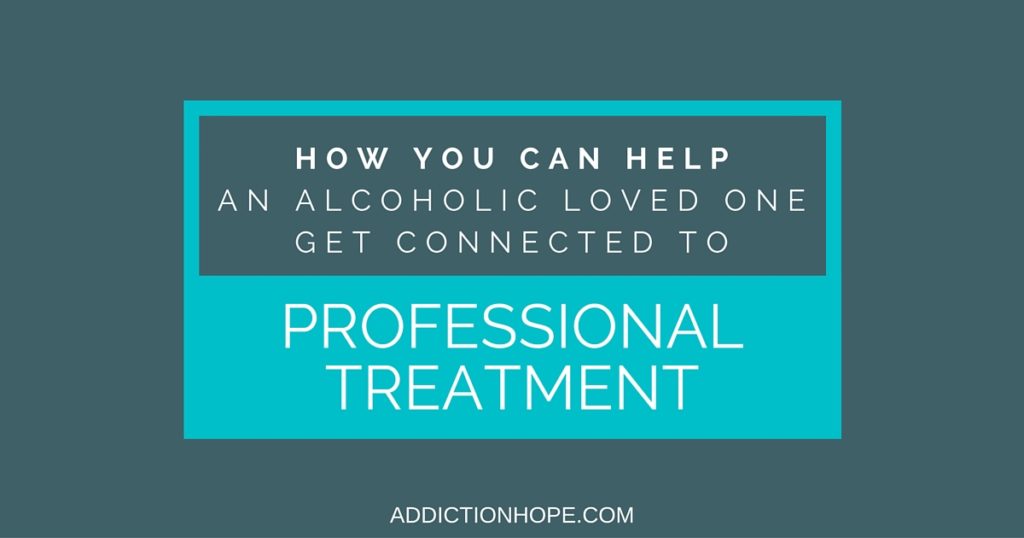
Contributed by Stephanie Sands, BSc, writer for Eating Disorder Hope and Addiction Hope.
Supporting a loved one through their struggle with alcohol addiction can so difficult. You may find yourself experiencing a range of emotions from anger to sadness, frustration to hopelessness, all the while not wanting to give up hope for their recovery. Social support is an extremely helpful aspect of the recovery process, particularly when considering or beginning a treatment program.
There are a number of options for professional treatment. You can help your loved one get connected to appropriate treatment by considering which modality would be best.
Options for treatment include:
- Group therapy sessions
- Individual counseling
- Inpatient/day program
- Outpatient treatment
Considering the needs of your loved one – such as their personality type, work schedule and availability, and the severity of their addiction – can help you find the best treatment match.
Group Or Individual Therapy
Does your loved one thrive in group settings, or would they prefer discussing their struggle privately? Identifying your loved one’s preference can be the first step in deciding which type of treatment would work best. Those who tend to be more introverted may benefit from individual therapy with a counselor.
You may find a counselor that specializes in alcohol abuse treatment either by searching online or speaking with a health care professional.
Many counseling centers offer both individual and group sessions, and may offer a sliding payment scale to accommodate those with low incomes or without insurance coverage. Depending on the professional qualifications of the counselor, your loved one may not require a physician’s referral. A psychologist or psychiatrist may require a referral first.
Group therapy is an excellent treatment option, especially if your loved one tends to be more outgoing and thrives on the support of others. Focused group therapy sessions will typically last between eight and 16 weeks, with weekly sessions lasting around two hours each.
Group members will be asked to participate in discussions and activities to:
- Uncover the roots of their addiction
- Identify triggers that lead to drinking
- Come up with alternative activities to engage in, other than drinking
Both group and individual therapy will likely involve cognitive behavioral therapy (CBT), which helps the alcoholic to restructure their thoughts and behaviors with respect to alcohol. Whether the goal of therapy is to reduce drinking or abstain from alcohol altogether, the therapist works with the group or individual to come up with strategies to achieve desired goals.
Other Group Options
In addition to counseling, your loved one might benefit from attending Alcoholics Anonymous (AA) meetings, which have helped thousands of individuals overcome addiction to alcohol. AA meetings are peer-support groups, led by recovered alcoholics using a 12-step recovery program. While your loved one attends treatment, you may benefit from attending Al-Anon meetings, which bring family members of alcoholics together for support.
Inpatient/Day Program Or Outpatient Treatment
Depending on the severity of addiction and the associated dysfunction in your loved one’s life, it may be worthwhile to consider treatment under the supervision of a medical team. Upon completing an intake assessment, a treatment coordinator will determine which treatment route will be best.
Inpatient Treatment
Inpatient treatment requires the individual to stay within the treatment facility for a pre-determined number of days, which usually involves a period of detoxification followed by intensive group- and individual-therapy sessions. Upon completion, many patients are required to continue follow-up care on an outpatient basis.
Inpatient treatment may take place at a hospital or residential treatment facility. Benefits of inpatient treatment include:
- Removing the patient from toxic environments and triggers associated with alcohol use
- Promoting abstinence from alcohol use during the duration of treatment
- Reduced likelihood of patient drop-out
- Increased access to support from treatment providers, including medical and/or psychiatric care
- Better recovery outcomes, due to the nature of the intensive treatment setting [1]
- Day programs
Similar to inpatient treatment, day programs run for eight to 12 weeks, with patients coming to the treatment center during the week for intensive therapy. Unlike inpatient treatment, day programs allow participants to go home during evenings and weekends. The determining factor between admission to inpatient treatment over a day program usually depends on medical stability, and whether the patient needs to undergo detoxification first.
Outpatient Treatment
Outpatient treatment is similar to a day program in that patients don’t require admission to the treatment facility, but are less obligated in time commitment. Similar to group therapy, outpatient treatment typically involves weekly group therapy sessions and one-on-one counseling with a therapist.
A possible benefit of choosing outpatient or day program treatment over inpatient treatment is that these programs allow the individual to stay within their natural environment and immediately apply newly learned skills to their life – rather than having to readjust after being discharged from inpatient treatment. [1] During outpatient treatment, your loved one is still able to attend work and participate in normal life commitments, all while attending treatment sessions in the evenings.
Helping your Loved One Find the Best Professional Treatment For Alcohol Abuse
While you may think one format of treatment would be best for your loved one, it is important to listen to their concerns and respect their decision. Ultimately, they are the one undergoing treatment, so it is important to support them in their top choice. Since inpatient treatment is very intensive, your loved one may benefit from starting with group or individual counseling first. If your loved one finds this is not the right fit, support them in finding another option.
The “best” treatment option may come from multiple sources: perhaps a combination of group and individual counseling, as well as attendance at AA meetings and social support from friends and family. Understand and expect that recovery takes time, and ask your loved one how you can support them through the recovery process.
Discussion Question: Share Your Thoughts Below
What has been your experience with helping support a loved one through treatment? What has worked well? Please share your findings in the comment section below.
About the author:
 Stephanie Sands is currently pursuing a Bachelor of Science degree in Kinesiology, majoring in Mind Sciences. She completed an Honors Degree in Psychology in 2012, focusing on eating disorders and personality. She intends to combine her educational background into holistic wellness practice, leveraging counseling, physical activity, nutrition coaching and more.
Stephanie Sands is currently pursuing a Bachelor of Science degree in Kinesiology, majoring in Mind Sciences. She completed an Honors Degree in Psychology in 2012, focusing on eating disorders and personality. She intends to combine her educational background into holistic wellness practice, leveraging counseling, physical activity, nutrition coaching and more.
References:
[1]: Finney, J. W., Hahn, A. C., & Moos, R. H. (1996). The effectiveness of inpatient and outpatient treatment for alcohol abuse: the need to focus on mediators and moderators of setting effects. Addiction, 91(12): 1773-1796.
The opinions and views of our guest contributors are shared to provide a broad perspective of addictions. These are not necessarily the views of Addiction Hope, but an effort to offer wider discussion of various issues by diverse concerned professionals.
